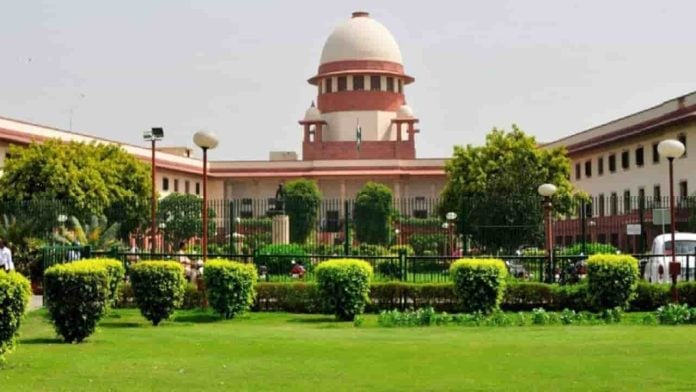The Supreme Court has come down heavily on the National Company Law Appellate Tribunal (NCLAT) for making physical filing of appeals mandatory, in addition to e-filing of the same.
Expressing displeasure over the practice, the Apex Court observed that if some judges were uncomfortable with e-files, the answer was to provide training to them and not to continue with old and outmoded ways of working.
Stating that the judiciary has to modernise and adapt to technology, the top court of the country observed that the tribunals cannot be an exception as this was no longer a matter of choice.
The Bench of Chief Justice of India Dhananjaya Y. Chandrachud and Justice J.B. Pardiwala noted that if a lawyer or litigant was compelled to file physical copies in addition to e-filed documents, then they would not resort to e-filing.
Calling this duplication of effort as time consuming, the Bench said it added to the expense, besides leaving behind a carbon footprint which was difficult to efface. The traditional model of a judicial process being a guzzling paper could not be considered environmentally sustainable and thus, needs to change.
The Apex Court directed that a copy of the present judgment be forwarded to the Chairperson of the NCLAT and to the Secretaries to the Union Government respectively in the Ministries of (i) Finance; (ii) Corporate Affairs; and (iii) Law and Justice, for ensuring compliance and remedial steps.
The Bench passed the orders on a petition filed by Sanket Kumar Agarwal under Section 7 of the Insolvency and Bankruptcy Code, 2016 before the National Company Law Tribunal, seeking initiation of Corporate Insolvency Resolution Process against APG Logistics Private Limited.
The NCLT dismissed this application on August 26, 2022. Sanket then filed an application for obtaining a certified copy of the NCLT order, which was uploaded on the website and provided to the appellant on September 15, 2022.
The Appellant then e-filed an appeal on October 10, 2022 before the National Company Law Appellate Tribunal against the NCLT order. An application for condonation of delay of five days was filed along with the appeal and the physical copy of appeal was filed on October 31, 2022.
The NCLAT dismissed the appeal on January 9 this year on the grounds that it was barred by limitation. It observed that the appeal was filed through the e-portal on October 10, 2022, which was the 46th day after the NCLT order.
The appellant contended that Section 61 of IBC prescribed a 30-day deadline for preferring an appeal against an order of NCLT and the NCLAT could only condone a delay of up to 15 days, if a sufficient cause was shown.
Advocate-on-Record (AoR) Mayuri Raghuvanshi, Advocates V.P. Singh, Akshat Singh, Dacchita Shahi, Vyom Raghuvanshi and Bhanu Gupta appeared for the appellant. Advocate-on-Record (AoR) Rashi Bansal represented the rRespondent.
(Case title: Sanket Kumar Agarwal & Anr vs APG Logistics India Private Limited)


